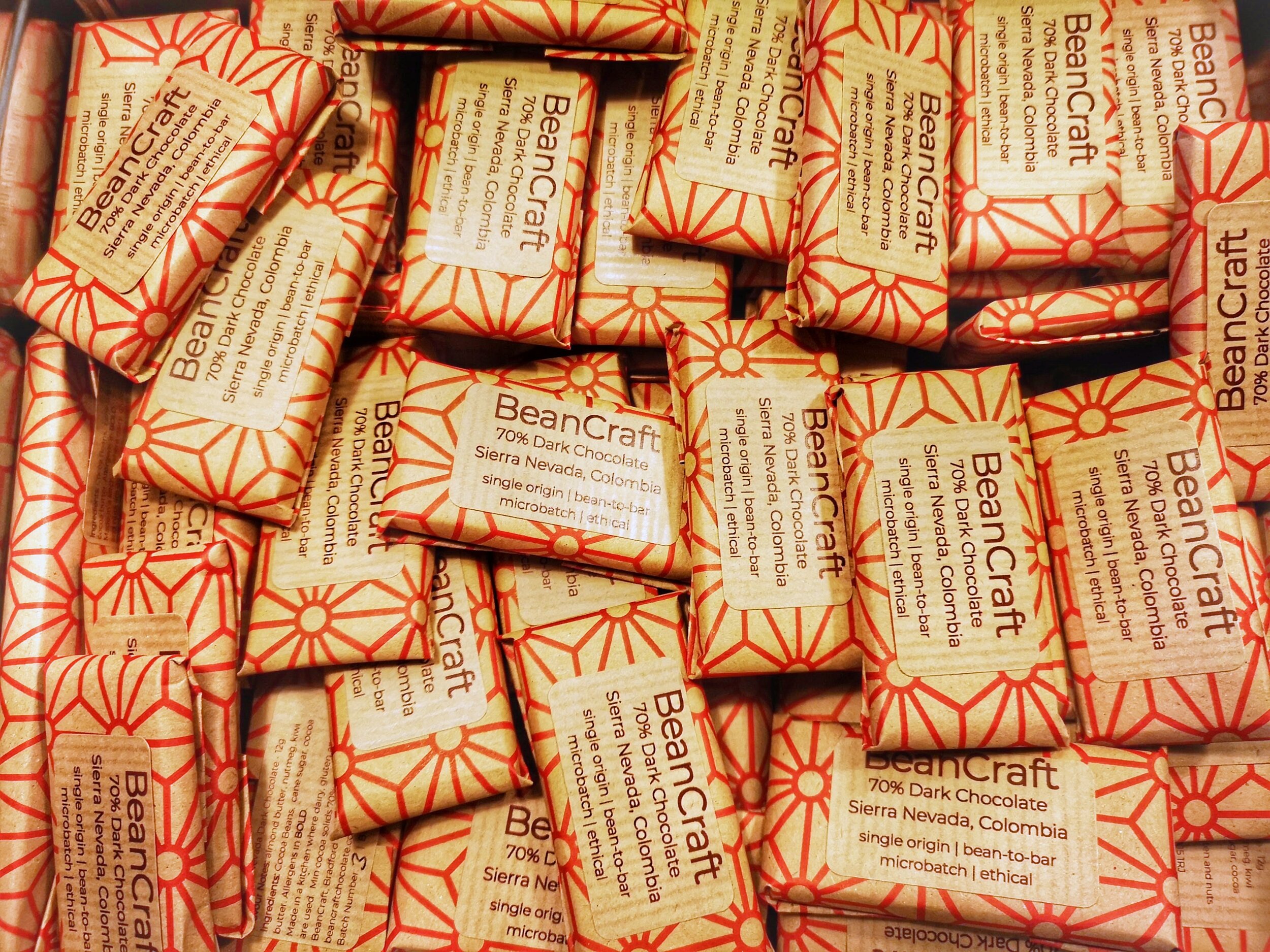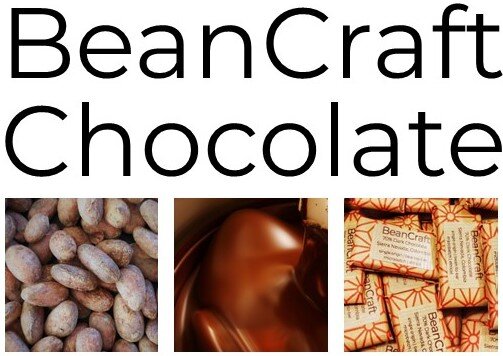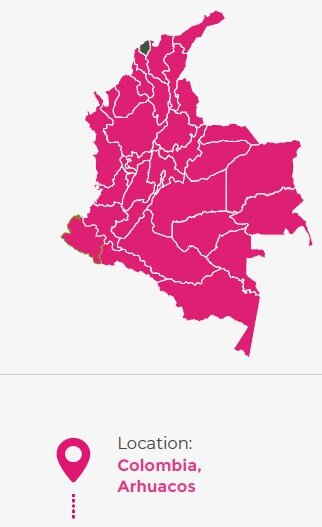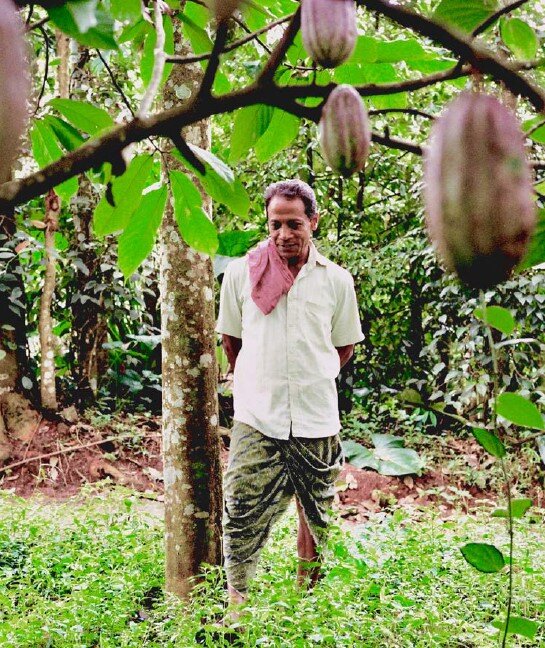Origins
At BeanCraft we only use high quality ingredients, including our cocoa beans, which are ethically sourced through a transparent supply chain to ensure farmers receive a fair price and improved long-term partnerships. This page gives a brief insight into the environment, the methods, the stories and most importantly the people who grow and process the cocoa beans that go into our chocolate. It is ultimately these people that you are supporting by buying ethically sourced chocolate.

Badou
Togo
Togo is a long narrow country in West-Africa with a short coastline on the Gulf of Guinea. While the North is very arid, the interior consists of a mountainous area, where cacao and coffee grows on the hills. The climate is tropical. Cotton, coffee and cacao are the main agricultural export crops, but phosphate is the main export. Badou, is located in the Plateaux region of Western Togo and borders Ghana. The Astonishing views over the plateaux, and the Akloa Falls nearby offer a great potential from growing coffee and cacao. Over 90% of the Togolese cacao is produced in the Plateaux region by smallholder farming families who are highly dependent on cacao, but mostly don't have any access to differentiated markets. In the past decades, Togo has suffered from mass deforestation. A first national forest inventory in 2015 to 2016 showed high degradation of several regions due to slash & burn agriculture and the consumption of wood energy. Cacao that grows in agroforestry can play an important role to avoid further deforestation, though additional training is needed to raise awareness, offer market alternatives for better income from cacao beans, and drive an energy transition. In the gallery below you can identify which of the UN Sustainable Development Goals our bean supplier is facilitating whilst working with the growers in Togo.
Bean supplier - Silva Cacao
Photographs - Silva Cacao
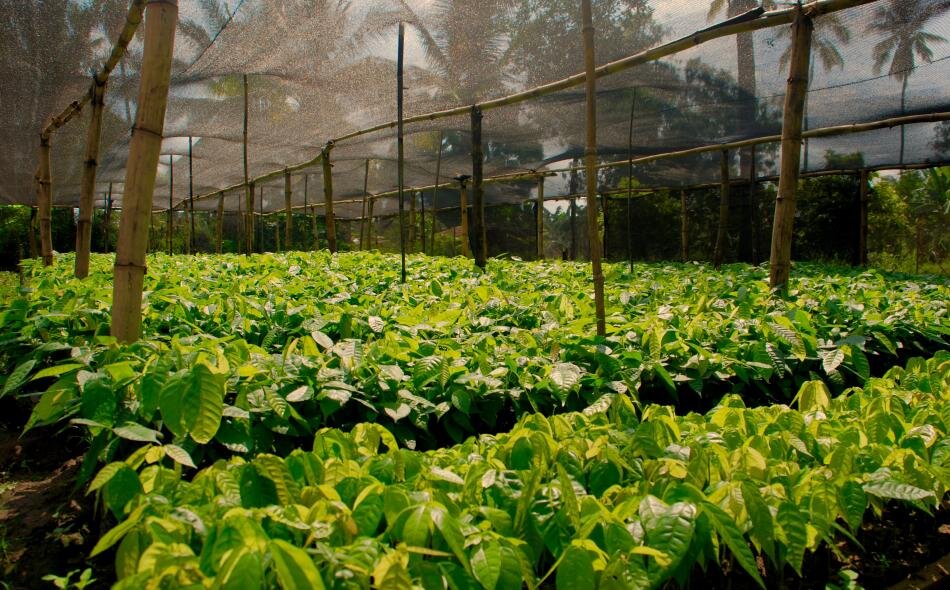
Kokoa Kamili
Tanzania
In the Kilombero valley, bordering the Udzungwa Mountain national park, smallholder farmers are producing an amazing cacao with a rounded profile, flavours of red fruits such as cherries and berries, floral notes and a smooth nutty and chocolaty finish. The social enterprise Kokoa Kamili drives a huge change in the community by buying wet beans directly from the farmers at premium prices, and carefully controlling fermentation and drying to assure a consistent quality product. The training of over 4000 farmers in good agricultural practices is helping to increase yield, as well as substantially increasing the quality of the beans, allowing them to achieve a higher farm gate price. This results in the farmers earning more money which allows them to invest more in their future, their family and education. Farmers in Kilombero have been practicing organic farming by default for generations. The lack of availability of inorganic inputs for cocoa has resulted in cacao trees that are grown without any pesticides, inorganic fertilisers, or other chemicals. In 2015 organic certification was obtained. In the gallery below you can identify which of the UN Sustainable Development Goals our bean supplier is facilitating whilst working with Kokoa Kamili and the growers in the Kilombero valley.
Bean supplier - Silva Cacao
Photographs - Silva Cacao

Sierra Nevada
Colombia
Cacao trees love tropical climates with high temperatures and lots of rainfall. This is exactly what many regions in Colombia have to offer. The country is know to produce excellent cacao; according to the International Cocoa Organization 95% of the beans exported from Colombia is fine flavour cacao. Not only abroad but also at home Colombian cacao is popular; the vast majority of the national cacao production (around 90%) is used domestically. Colombians eat chocolate as a sweet treat, but also use it in a drink in which they combine hot milk or sugar water with a chunk of chocolate. Arhuacos cacao is produced by around 80 indigenous smallholder farmers in the Sierra Nevada de Santa Marta mountain range on the Caribbean coast in North Colombia. The cacao is grown under the canopy of the natural forest, together with food crops like corn, yucca, and fruit trees. After manual picking the farmers bring the wet cacao beans to a central fermentation units. Fermentation is almost 7 days with 5 turns, after which the beans are dried on covered wooden decks until moisture levels are below 7%. After careful screening, picking and selecting, the beans are packed and transported to Cacao Hunters’ warehouse in Popayan.
The Arhuacos are subsistence farmers that supplement their family income with growing criollo blanco cacao, a rare and native cacao variety with remarkable white beans. In the gallery below you can identify which of the UN Sustainable Development Goals our bean supplier is facilitating whilst working with the Arhuacos growers.
Bean supplier - Silva Cacao
Photographs - Silva Cacao

Idukki
India
Idukki Organic cacao grows in southwest India in the state of Kerala, known as ‘God’s own country’. The Idukki hills are part of the Western Ghats mountain range, stretching some 1600 km from north of Mumbai to the southern tip of India. The mountain range is a biodiversity hotspot, and home to the largest population of endangered Asian elephants, liontailed macaques and sloth bears. Tropical forests with a rich diversity in flora and fauna cover more than half of the Idukki district. Cacao trees grow under the canopy of these forests, and are intercropped with spices, like black pepper, nutmeg, cardamom, and fruit trees such as coconut, papaya, mango, jackfruit, passion fruit and banana. This elaborate agroforestry system serves as a natural buffer zone to protect the forests of the surrounding hills. The Idukki hills are known for their tropical climate with an average temperature of over 24°C. Rain is abundant with over 2000 mm precipitation per year, but there is also lots of sunshine. The green hills in Idukki are known for their fertile soil, rich with organic matter. Weather conditions combined with soil and topography provide an excellent environment to grow high quality cacao.
The cacao beans are Trinitario and Forastero types, more specifically Mankuva. This variety is named after Mankuva village where its mother tree grows. The beans are typically large. Idukki Organic cacao is characterized by a chocolaty profile with a pleasant smooth and creamy texture. The wet beans are purchased directly from the farmers by GoGround and processed at their central post-harvesting centre. The beans are fermented for 5 days in wooden boxes then dried on big tables under shelters, where they are constantly shuffled and monitored. Drying and selection is a women-only managed process.
In the gallery below you can identify which of the UN Sustainable Development Goals our bean supplier is facilitating whilst working with the growers.
Bean supplier - Silva Cacao
Photographs - Silva Cacao
